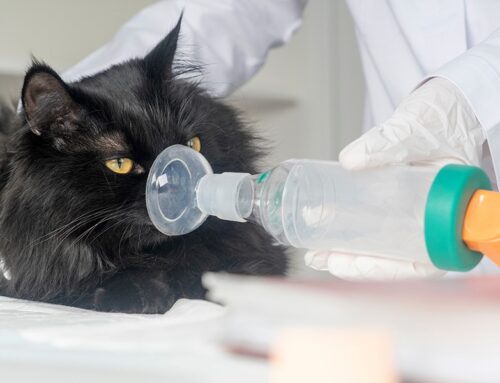At Forestside Veterinary Clinic, we care deeply about your pet’s health, and one common concern that dog owners face is kennel cough.
Kennel cough is a highly contagious respiratory condition that can affect dogs of all breeds and ages. This article will provide a detailed overview of kennel cough, including its symptoms, causes, diagnosis, treatment, and prevention.
What Is Kennel Cough?
Kennel cough, also known as canine infectious tracheobronchitis, is a respiratory infection that affects the throat, windpipe (trachea), and lungs of dogs. It is similar to the common cold in humans and often spreads in environments where dogs are in close contact, such as kennels, dog parks, grooming facilities, or dog daycare centers.
While kennel cough is usually not serious for healthy adult dogs, it can be more dangerous for puppies, older dogs, or dogs with weakened immune systems.
Symptoms of Kennel Cough
The most common symptom of kennel cough is a persistent dry, hacking cough that may sound like a goose honking. Other symptoms may include:
- Retching or gagging, often after coughing
- Runny nose
- Sneezing
- Lethargy
- Loss of appetite
- Mild fever
In some cases, kennel cough can lead to more severe respiratory issues such as pneumonia, especially if left untreated or if the dog has a compromised immune system.
What Causes Kennel Cough?
Kennel cough can be caused by several different bacteria and viruses, most commonly:
- Bordetella bronchiseptica: A bacteria that is often the primary cause of kennel cough.
- Dogs infected with Bordetella are more susceptible to secondary infections.
- Canine parainfluenza virus: One of the viruses that contributes to respiratory infections in dogs.
These pathogens are easily spread through the air when infected dogs cough or sneeze. The infection can also spread through direct contact (nose-to-nose) or shared surfaces, such as water bowls, toys, or bedding.
How Is Kennel Cough Diagnosed?
If you suspect your dog has kennel cough, it’s important to visit us at Forestside Vets for a proper diagnosis. Your vet will likely assess your dog’s medical history and perform a physical examination, paying close attention to the dog’s respiratory sounds. Most cases of kennel cough will be diagnosed on physical exam alone.
In some cases, additional diagnostic tests may be recommended, including:
- Chest X-rays to check for signs of pneumonia or other complications
- Swabs taken from the throat or nose to identify the specific bacteria or virus causing the infection
How Is Kennel Cough Treated?
Most cases of kennel cough are mild and will resolve on their own with time and rest. However, to help your dog recover more comfortably, your vet may recommend:
- Cough suppressants to reduce the severity and frequency of the cough
- Antibiotics if the infection is caused by bacteria, such as Bordetella
- Anti-inflammatories to reduce throat irritation and discomfort
- Hydration and plenty of rest to help your dog recover faster
If your dog’s symptoms persist or worsen, more intensive treatment may be necessary, especially if complications such as pneumonia develop.
Can Kennel Cough Be Prevented?
Yes, there are several steps you can take to reduce the risk of your dog contracting kennel cough:
- Vaccination: One of the best ways to protect your dog from kennel cough is by getting them vaccinated. There is a vaccine available for bordetella bronchiseptica and canine parainfluenza virus, and it is often given as an intranasal, oral, or injectable vaccine. Keep in mind that this vaccine doesn’t prevent all forms of kennel cough but does reduce the severity of symptoms and the likelihood of contracting the most
common strains. - Avoid exposure: Try to limit your dog’s exposure to crowded places where dogs interact closely, such as kennels or dog parks, especially if there is a known outbreak.
- Good hygiene: Keeping your dog’s environment clean, including their bedding, toys, and bowls, helps minimize the spread of infectious agents.
Conclusion
Kennel cough is a common but manageable condition. While it can sound alarming due to the harsh cough it produces, most dogs recover quickly with the right care. If you think your dog might have kennel cough, don’t hesitate to contact us at Forestside Veterinary Clinic. Our experienced team is here to diagnose the condition, offer treatment, and provide advice on how to prevent future infections.
For more information or to schedule an appointment, feel free to reach out to our clinic today!



